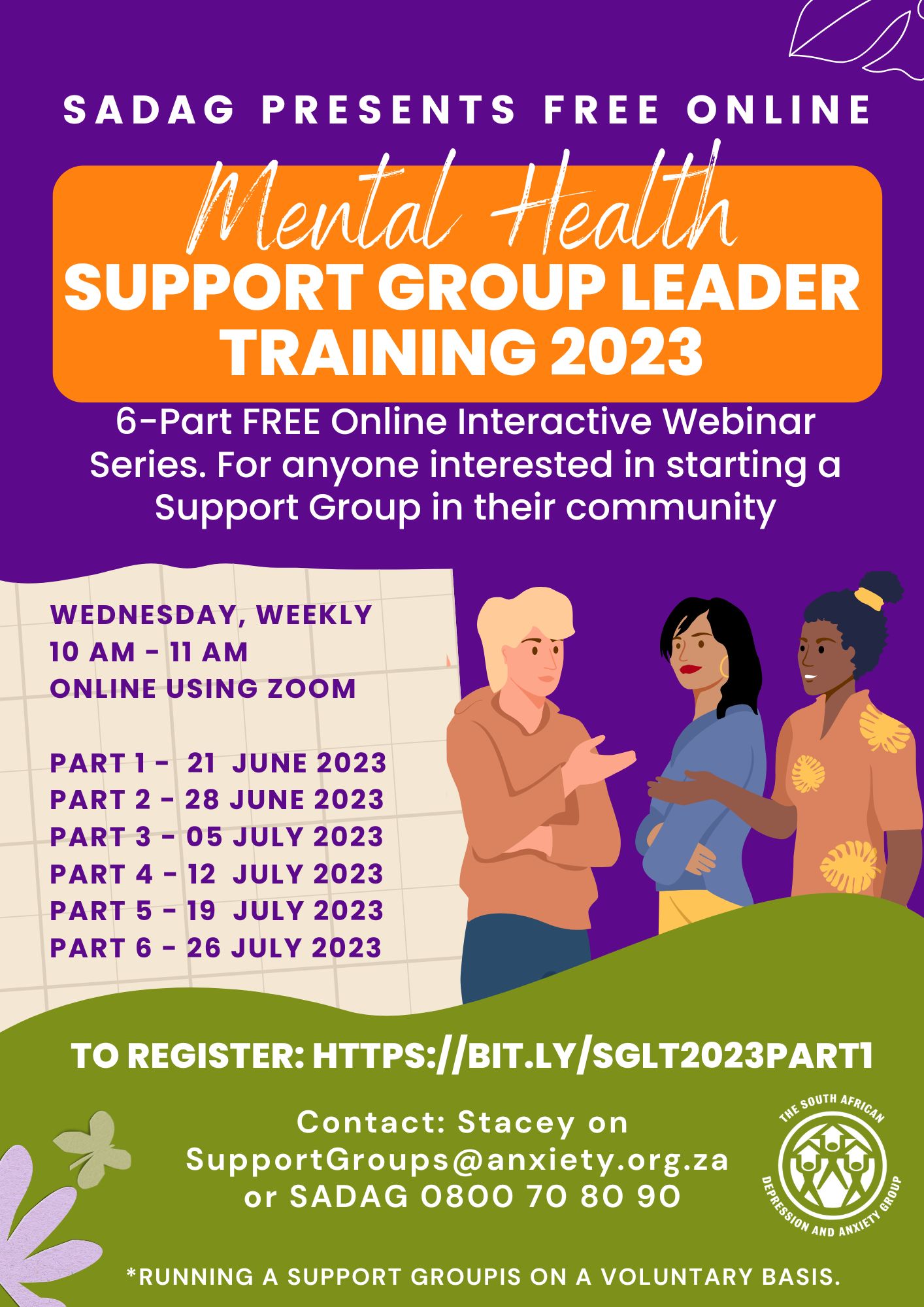SADAG hosts FREE Online Mental Health Support Group Leader Training Webinar Series
2 June 2023

|
SADAG has over 160 Support Groups around the country that deal with Depression, Anxiety, Trauma, Chronic Illness, Bipolar Disorder, as well as Support Groups specifically for family members and loved ones of those with Mental Illness. Support Groups are gatherings of people with common experiences and concerns who meet together to provide emotional and moral support for one another. They encourage a sense of community, a source of empathetic understanding and a non-judgemental environment. The purpose of the training is not only to generate awareness about Support Groups, but also to launch more Support Groups around the country, and to provide aftercare to those in need of supplementary support. The training takes place online and is comprised of 6-online sessions each followed by assessments to test your understanding and readiness to run a Group, as well as practical exercises that will give you first hand insight into what running a Support Group is all about. This 6-part online series covers everything from: • What a Support Group is |
|
The live webinars will take place, weekly on Wednesdays from the 21st of June until the 26th of July 2023. Part 1: Wednesday 21 June 2023, 10am – 11am A Support Group can help you cope better and feel less alone as you make connections with others facing similar challenges. SADAG Support Group Leader, Lindiwe Nkolombe comments; "In a Support Group one is able to realise that they not alone. Members feel understood because others are experiencing similar situations to them." A Support Group shouldn’t replace your usual medical care, but it can be a valuable resource to help you cope, manage and maintain your Mental Health. The training is open to anyone who is keen and willing to start a Support Group. However, prior to becoming a SADAG Support Group Leader you will need to complete an assessment questionnaire to evaluate if you are ready to start a Support Group. It is not necessary for Support Group Leaders to be Mental Health practitioners, because Support Groups are not therapy, they cannot replace therapy, nor are they the first line of mental health treatment/intervention. Support Group Leader Ann Douglas comments on one of the benefits of running a Support Group, “As a Support Group leader you learn humility. The best thing is when Group Members interact and start to trust each other." |
|
SADAG Support Group Co-ordinator, Stacey Coconas explains: “The power of Support Groups brings many benefits to the individual, especially in the camaraderie and sense of togetherness if offers. Furthermore, by identifying a problem in the community, a Support Group can be the beacon of hope it needs for people to come together in dealing with a common issue.” SADAG guides and trains new Support Group Leaders on running a group step-by-step. We help with training webinars, materials, handouts , information and ongoing support. Mental illness affects an estimated one in three South Africans, however many people don’t know where to go for help or how to manage their Mental Health. Support Groups are a great resource reminding us that there is always hope and that you are not alone. "Sometimes just being at a meeting with others who are on a similar journey is enough. It’s not always about sharing your own story, but knowing that you are not the only one going through this pain, and you don’t have to face it alone." Alexandra Wallis, founder Of KZN’s Mums Support Network. If you, or someone you know, are interested in starting a Mental Health Support Group in your area, please register for part 1 of our webinar series “AN INTRODUCTION TO SUPPORT GROUPS” on Wednesday the 21st June at 10am by going to https://bit.ly/SGLT2023Part1 or emailing This email address is being protected from spambots. You need JavaScript enabled to view it. |

























